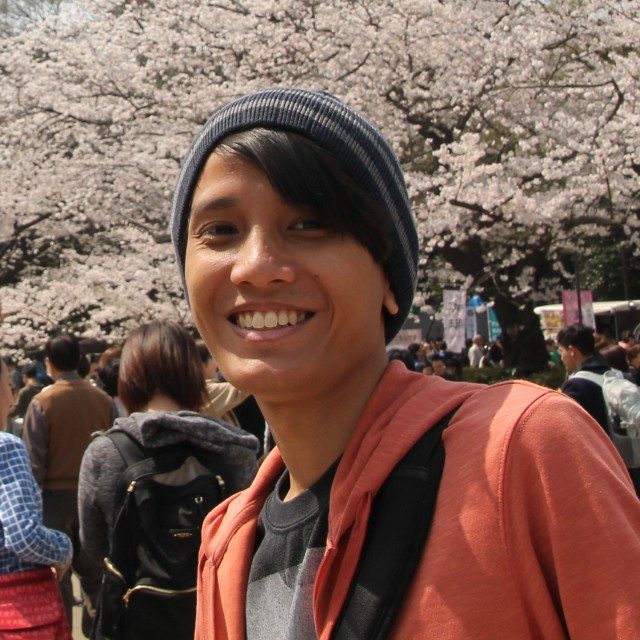SUMMARY
This is AI generated summarization, which may have errors. For context, always refer to the full article.

It’s been an unpredictable time in music this past couple of weeks. Due to the global spread of the coronavirus, more than a few artists have advanced the releases of their latest albums, if not dropped full LPs out of the blue.
Between all the donating, organizing, and social distancing you should be doing, you have more than a few surprise releases to fill your time: Childish Gambino’s 3.15.20, Nine Inch Nails’ Ghosts V–VI, and Dua Lipa’s Future Nostalgia, to name a few.
However, make sure not to overlook Unique Salonga’s Pangalan—an excellently produced sophomore album that showcases the 19-year-old’s strength as a lyricist, and his growing interest in sonic experimentation.
Things can get very, very strange on Pangalan, but the album remains anchored by Unique’s instantly recognizable vocals, unfailing falsetto, and his penchant for thick, psychedelic soundscapes. As a whole, this record isn’t a massive departure for the singer-songwriter, but it certainly displays a more focused vision than what was presented in his 2018 debut, Grandma. Whereas that album shifted personas and influences with every track, Pangalan keeps to a tight eight tracks with one clear narrative theme: the anxiety that fame and public attention bring.
Unique’s approach to addressing his lyrical ideas is pretty clever: either he straps his insecurities and paranoia to relentless, energetic beats, or — like in the deceptively happy-go-lucky “Bukod-Tangi”—he uses melody to distract us from the loneliness he’s laying bare. His compositions here signal the culmination of his efforts on his debut; he uses psychedelia to balance out his uneasy feelings, or to deny them altogether. However, this doesn’t mean that Unique’s melodies aren’t worth listening to on their own. There are still a handful of hooks here that should prove to be as catchy as any of his previous hits. The aggressive central guitar riff of “Lamang Lupa” and the soaring chorus of “Huwag Ka Sanang Magagalit” come to mind.
All of Pangalan is wrapped up in slick production that makes each song feel expansive, no matter how modest Unique’s writing gets. Electronic instrumental opener “Korporasyon” and the pounding “Dambuhala” are remarkably full-bodied, while the gentle “Pahinga” still manages to position Unique and his piano on a massive stage.
But let’s address the elephant in the room, what many people have already raved about on social media: at the center of Pangalan is the five-minute “Delubyo,” less an instrumental song and more an auditory short film that stands as one of the weirdest things to be put out by a popular musician in recent memory. It’s also one of the most exciting things you could hope to listen to this year. The track employs a variety of audio samples, from laughter and news reports to a homily and the sounds of a domestic argument—all mixed together in a dizzying and foreboding tempest of noise and fury.
But “Delubyo” isn’t just weird for weirdness’ sake. To Unique’s credit, he maintains an impressively consistent tone and narrative trajectory throughout the track, making it thrilling to hear the first time and even more rewarding with every repeat listen. Like many great experimental films, it’s rooted in clear themes but it still invites varied interpretations. If Unique wants to spend the rest of his career only producing songs like this, that wouldn’t be a problem at all.
Still, within the context of Pangalan’s meditations on fame, “Delubyo” works—its sheer ambition casts a shadow over the rest of the album (for better or worse), acting as an omen of all the overlapping anxieties brought about by the modern world. “Korporasyon” and “Dambuhala” work in a similar way, setting up the machine of industry and celebrity as the antagonizing force that warps Unique’s perception of himself.
The rest of Pangalan is a sharply written journey of self-doubt and indecision. “Lamang Lupa” captures this conflict best: “O lamang lupa, sa’n mo ba ‘ko dadalhin? / Katotohanan ay ayoko munang harapin / Gusto ko lang namang makalimutan ang / Dala-dalang problema kahit pansamantala.” With songs like this and “Mga Katulad Mo,” Unique recognizes the difficult position into which young artists like him can be placed. Either he conforms and climbs toward lonely success, or he falls back to earth to contend with his deepest weaknesses, but without the support system that celebrity affords him.
Fortunately, Unique’s persona manages to find some uneasy peace by the album’s end.
By the time Pangalan reaches “Pahinga,” he’s dispelled his insecurity, repeating, “‘Di tayo para sa lahat.” But in “Huwag Ka Sanang Magagalit,” he retreats, still anxious though at a capacity he can control. It’s an unglamorous, self-deprecating portrayal that ironically cements Unique as a singular musician now fully confident in his abilities. There’s no need to associate him with his former band; Unique has made sure that we remember his name. – Rappler.com

Emil Hofileña is a writer from Quezon City. He is currently taking his graduate studies in Communication.
He was selected as a juror for the 2018 Filipino Academy of Movie Arts and Sciences (FAMAS) Awards, in the full-length feature category.
Add a comment
How does this make you feel?
There are no comments yet. Add your comment to start the conversation.